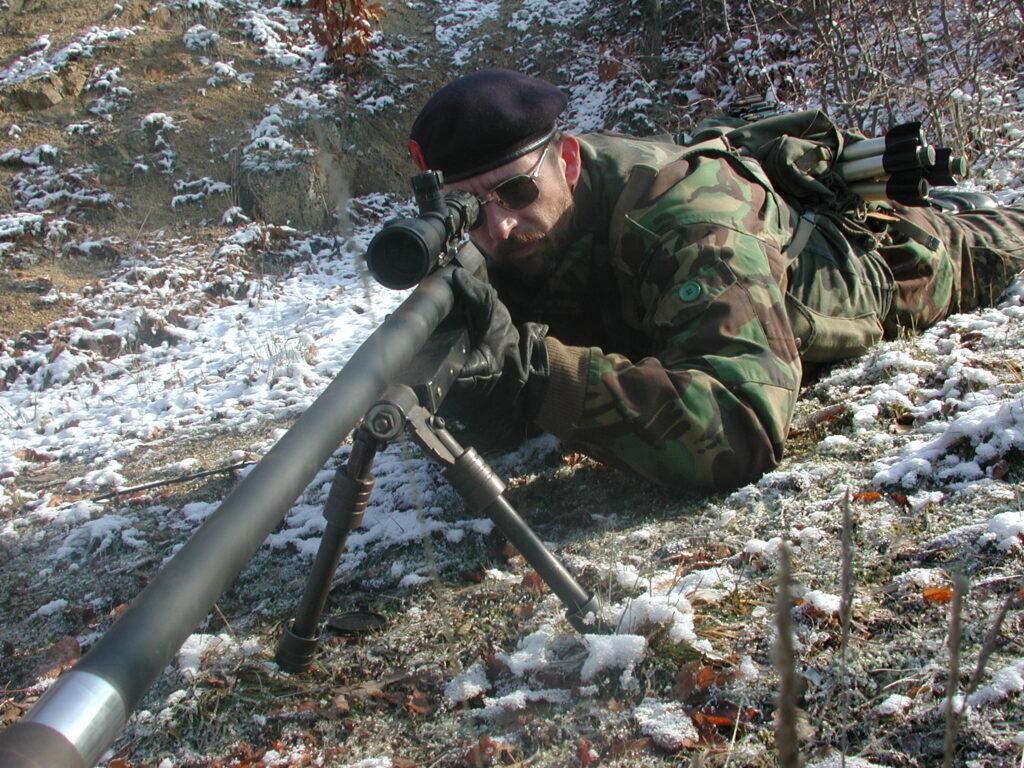
My meeting with Johan Mekkes in December 2000. He claimed to have killed Serbs for Albanian insurgents after NATO’s war with Yugoslavia had ended
After KFOR and the so-called International Community took control of Kosovo from June 12 1999, we allowed and supported Albanian guerrillas, call them terrorists if you like, to destabilize Serbia. In this article, I will take you on a journey through my personal experiences and encounters with these rebels as a journalist.
It is also likely that the rebel movement UÇPMB, the so-called Liberation Army of Preševo, Medveđa and Bujanova, received US-style infantry training to fight the Serbs after June 12, 1999 when hostilities between NATO and Yugoslavia should have seized according to the Military Technical Agreement.
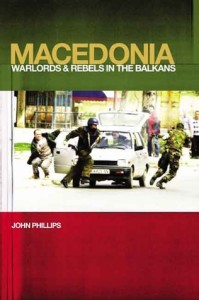
Together with my old colleague John Phillips, the former Balkan correspondent for The Times of London, we had many interesting experiences together covering the conflict in South Serbia and Macedonia in 2001. In his book Macedonia warlords and rebels in the Balkans, he wrote the following on page 2:
“American intelligence was active in Serbia and Kosovo but its operatives were evidently struggling to come to terms with the new era ushered in by the demise of Milošević’s brutal regime. An ethnic Albanian arrested by British troops for a bomb attack on a busload of Serb civilians in northern Kosovo, Florim Ejupi, was identified credibly as a CIA-trained agent months later after he vanished from American custody, for example.“
In his book, Phillips also mentions the British officer Bob Churcher of the Royal Military Academy Sandhurst who observed in his paper Kosovo Lindore Preshevo 1991-2002 & The FYROM Conflict that the UÇPMB:
“also seem to have received training assistance from someone or some organisation training in an American military style. This became apparent both from the style of marching, complete with US-type marching songs, and the infantry tactics used. (The effectiveness of this was seen in November 2000 when a series of well coordinated infantry attacks demonstrated the UÇPMB’s ability to coordinate the use of 82mm mortars and to effectively “re-organise on the objective” -something that the Bosnian army never learnt in three years.)“
Whether the US support for the UÇPMB was direct or indirect through a company like the MPRI or similar, I do not know, but soon, I will have new and revealing information about events connected to this. However, I would like to publish this information first in Norwegian and English language media.
In the meantime, you an old newsletter from December 2000, you can read the story Dutch sniper killing Serbs. Below you can also read you can read a couple of stories from my experiences as a war reporter in South Serbia and Macedonia.
May 1, 2001 was the date when the Serbs got back the buffer zone on the border to Kosovo, and this was an interesting story that I wrote about the Norwegian newspaper Aftenposten.
Edit, March 20, 2013: In the story below, you will see how I was thinking in 2001. I think I was still colored by my experiences as a press officer in KFOR when I for instants claimed that Slobodan Milošević started all the wars in the Balkans. Today I know that this was not a nuanced and balanced view. Milošević was not solely responsible, but of course he was not without guilt either. I wanted to let my analysis from 2001 stand as it is because it is useful to know how I was thinking at that time. However, I have also included some relevant links to the events I was a part of, and some clarifications necessary to understand the context.
Hunting for insurgents in no man’s land in Kosovo
Aftenposten 27.05.2001
KAHRS KRISTIAN
Section: GLOBAL Page: 7
Classification: Defense
Topic: War | Peace Forces | NATO
Albanians and Serbs had to make an effort together to rescue a Norwegian journalist out of the ditch. Unthinkable just a few months ago.
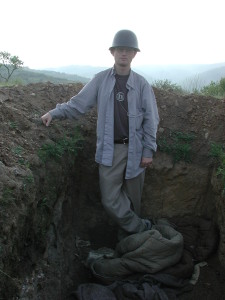
Muhovac. Near the border with Kosovo Serbs have taken back control over a five kilometer wide buffer zone that has been occupied by Albanian rebels. The day before the Serbs moved in, my good colleague from the Dutch Het Parool, Mone Slingerland and I drove into the buffer zone in search of the Albanian rebel army UÇPMB.
The village of Muhovac, one kilometer from the border of Kosovo, has been one of the rebel army’s headquarters, but when I and my Dutch colleague Mone Slingerland drove into the village, there were no traces of the rebels. Serbian police had visited earlier in the day, but the rebels had abandoned their positions before they came.
So we drove further up into the mountains on the bad wagon roads, hoping to meet some of the rebels. These roads can hardly be called roads, and the car got some bad treatment.
Outside Muhovac there was no sign of life anywhere. In this deserted the Albanian rebel movement UÇPMB, an organization they called the Liberation Army of Preševo, Medveđa and Bujanovac, had set up training camps and positions in defense and attack against Serbian forces. It was clear that here there had been fighting not long ago. The rebel commander in this area, Muhamet Xhemaili, was considered the most extreme and uncompromising of the Albanian rebels, but now no one knows where he is located. Some believe that he has fled to another country.
UÇPMB had lost on all fronts after NATO agreed with the Yugoslav authorities that they could get back the buffer zone. They have found that there is no point in fighting a professional Yugoslavian army which has more than enough experience from all the wars Milošević started.
We thought we were on our way to a bigger city, but the roads just became worse and worse, and it was getting dark. We were delighted when we saw a village from the top of a mountain, but the joy was short-lived when we found out that this village was only the end of a dead-end leading nowhere.
In this abandoned village we ended in the ditch, and we tried to get the car up, but it just slipped further down a slope that ended in a river. We did not take the chance to sleep in the car for fear of ending up in the river, and we did not take the chance to take us into the houses of the fear that UÇPMB had left landmines as a present to the Serbs. That night we slept on the ground, sharing one sleeping bag.
Discovered by a British UAV
At midnight we heard a noise that sounded like a moped.
This was the unmanned British plane Phoenix, used for surveillance and intelligence. So we opened the door to trigger the alarm, but neither KFOR, Serbs nor UÇPMB came to this abandoned village.
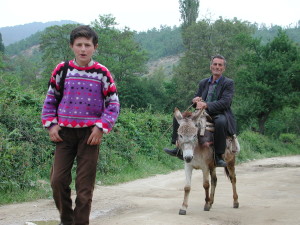
When it was light, we began a three and a half-hour march to return to Muhovac, but when we came to the village, Serbian police forces had taken their positions, and the Albanians were not very willing to help us because they were afraid of the Serbs. Still, it was good that the people in the village remembered me from when I had visited the sniper Qlirim few months earlier, and therefore, we eventually help of ten Albanians and a tractor
Just before we reached the car we met a patrol from the Yugoslav army with their rifles ready to shoot, aiming at us. The Serbs wanted to feel sure that they had total control over the area without fear of getting ambushed from the UÇPMB. Mone, the one of us who spoke Serbian at that time, shouted: “Do not shoot, we are journalists,” or “Ne pucaj, mi smo novinari!”
When the Serbian soldiers realized that it was the Norwegian journalist who had driven the car in the ditch, they began to laugh. “So you’re the idiot who lost control of the car, they laughed.” After Yugoslavia had gotten a new democratic government, soldiers and police had been ordered to treat the press in the best way.
The whole story ended with the Yugoslav soldiers with local Albanians helped to get the car up the slope.
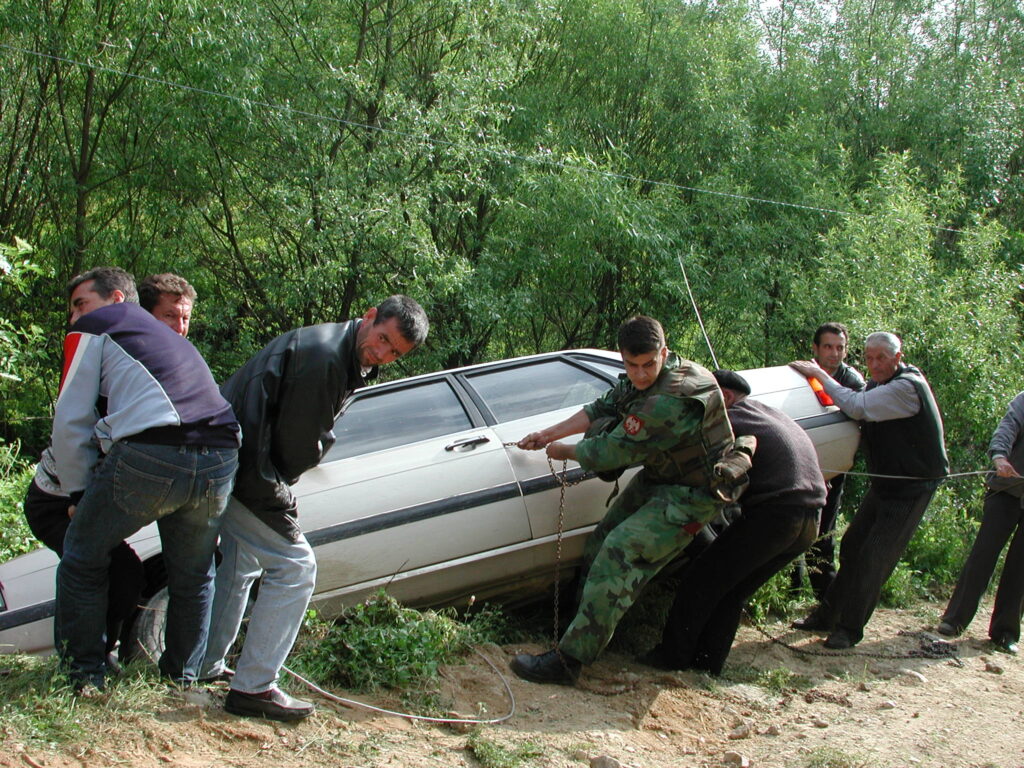
Help from Soldiers. Together with Yugoslav soldiers, local Albanians helped a Norwegian journalist to get the car up from a hillside outside the village of Muhovac.
After the conflict in southern Serbia had calmed down, it did not take long before the conflict in Macedonia flared up. Albanians make up about 25 percent of the population in Macedonia, and even if they were discriminated against in some areas by the Macedonian authorities, I do not think much of that armed insurgency is primarily a fight for minority rights, rather to protect criminal interests. But there were certainly plenty of good stories for journalists, and I wrote many articles for the newspaper Aftenposten in the spring and summer of 2001.
But some of the articles also have an unofficial story that has not been told publicly previously. Once again I was teaming up with my Dutch colleague Mone Slingerland . This time we had to park my car outside the Macedonian government lines, and together with the Danish journalist Gunnar Willum we went into the Albanian-held areas on foot.
It is not always possible to do much when you’re under fire, and sometimes you feel quite helpless, and this our reporter troika experienced personally. On the way, we were exposed to mortar fire, and in these situations, it is impossible to know where the shells land. Then it is best to seek the best coverage you can find when you hear the squeal from the shells, but at least we were not direct targets of the fire.
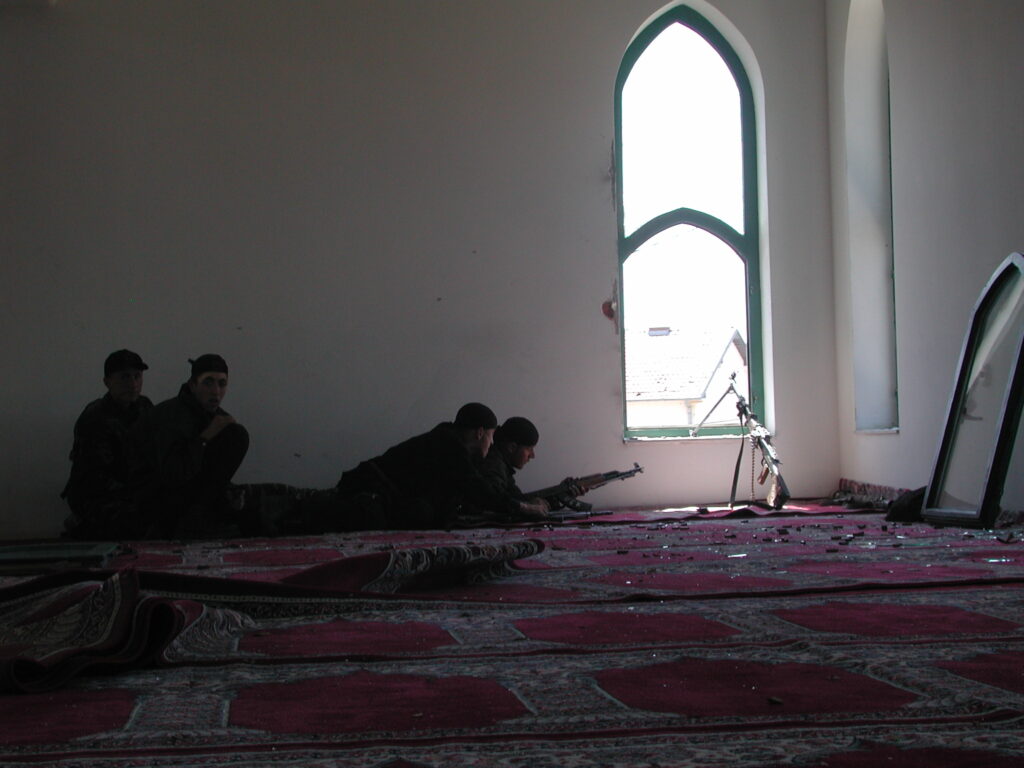
Macedonian UÇK taking fire from the Macedonian Army in the mosque in the village of Matajce. The day after we were there, the mosque was totally demolished by Macedonian artillery fire.
When we had made our reports in Lipkovo, the Macedonian UÇK offered to give us a lift, and we thought they would escort us to a safer area so we could get back to Skopje, Macedonia’s capital, but instead we ended up on the front line in the village Matajce a few kilometers south of Lipkovo. We got into the local mosque where the Macedonian UÇK was in position and fought against the Macedonian army. There was absolutely no doubt that we could not blame anyone if we were to be killed in the mosque; we were legitimate targets, and the Macedonian authorities had no way to know that we stayed there. The mosque was under direct fire from Macedonian artillery and mortars, and the room we stayed in had poor cellular coverage. However, I would try to negotiate a five-minute ceasefire that we could get out.
But the policeman I spoke to on the phone, Stevo Pendarovski, washed his hands. He said it was the only the army that could agree to a ceasefire. I do not blame Pendarovski, and he has done a lot of good things for Macedonia, including as national security adviser to the Macedonian President. The conversation ended by a grenade exploding near the position I had taken for the phone call. It was best to get in again. We did not know how to get out of this jam, but the rescue came when one of the UÇK men were wounded and had to be evacuated.
Two rebel soldiers occupied the front seat, while the wounded UÇK guy and the three of us journalists pressed together in the back seat. I will admit that I held my head very low then. I know it’s not smart to take the shuttle from one of the warring parties to a conflict, but we did not have much choice.
UÇK drove us back to Lipkovo, but we had nowhere to run to get us out of the conflict zone. The solution was that we started a four-hour march to Kosovo. The border was actually closed, but we got the status as the first war refugees that came to a border post controlled by Italian KFOR soldiers. We took a taxi to the official border between Kosovo and Macedonia, and another taxi back to Skopje. The next day Mone and I took a taxi to pick up my car.vcgbt
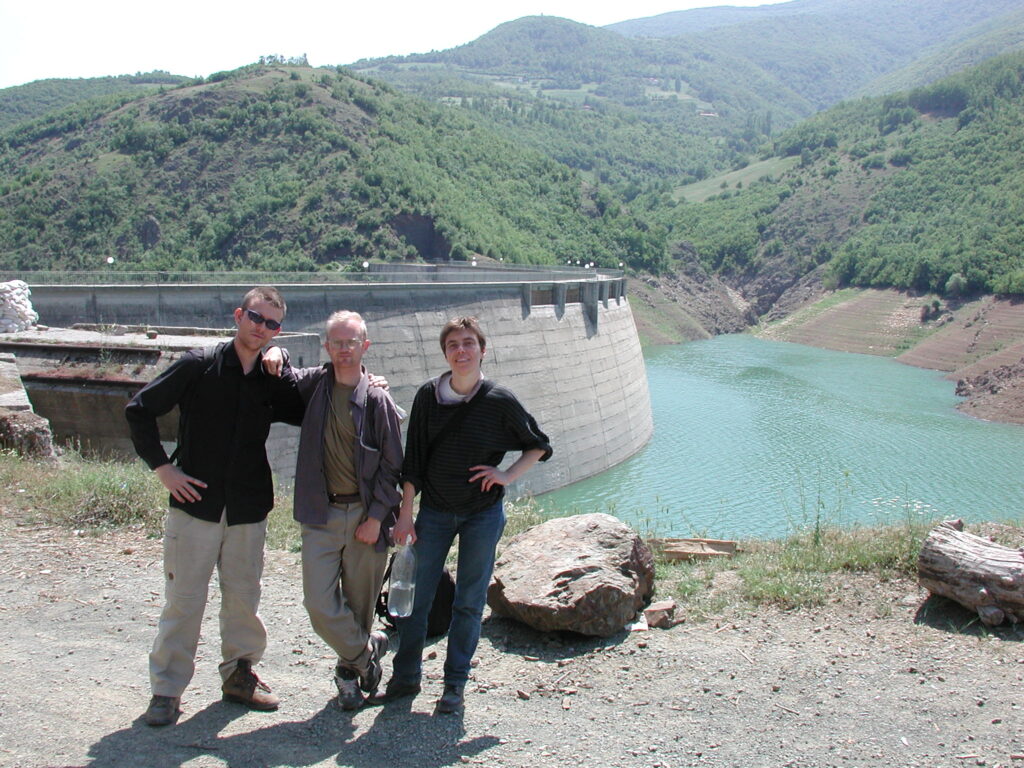
Three journalists from the Netherlands, Denmark and Norway marching from Macedonia to Kosovo to avoid the fighting.
It was perhaps just as well there was no truce to rescue us, and there had been an embarrassing affair. We had been treated in the same way as my British colleague Nick Wood who provided the BBC. His car was blown up, and Macedonian government forces had to rescue him. But he was also expelled for a period from Macedonia.
I say sometimes that it’s a thin line between bravery and stupidity, and sometimes as the episodes I have described here, I have definitely crossed the border into stupidity, but these are experiences I would have been without. Regular staff in newspapers will never take such risks, and although the editors do not want to take responsibility for risk-taking journalists, they are dependent on the presence of freelancers who take risks of going to war zones.


